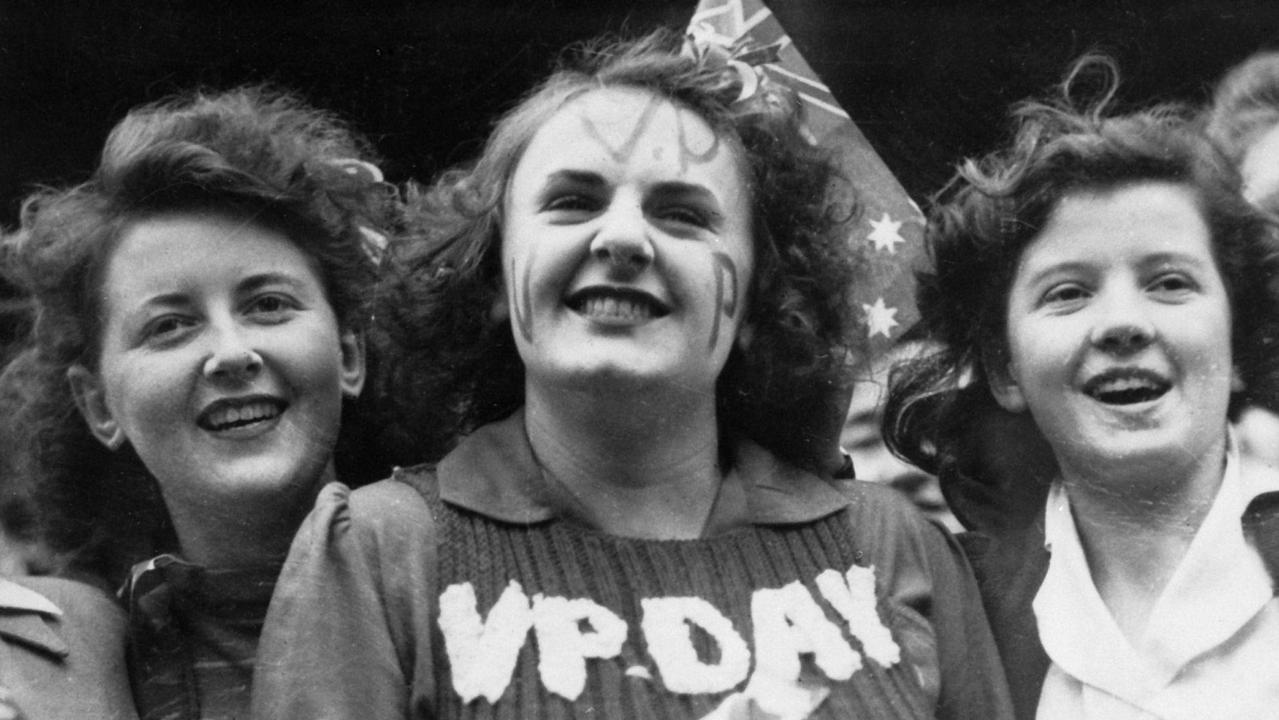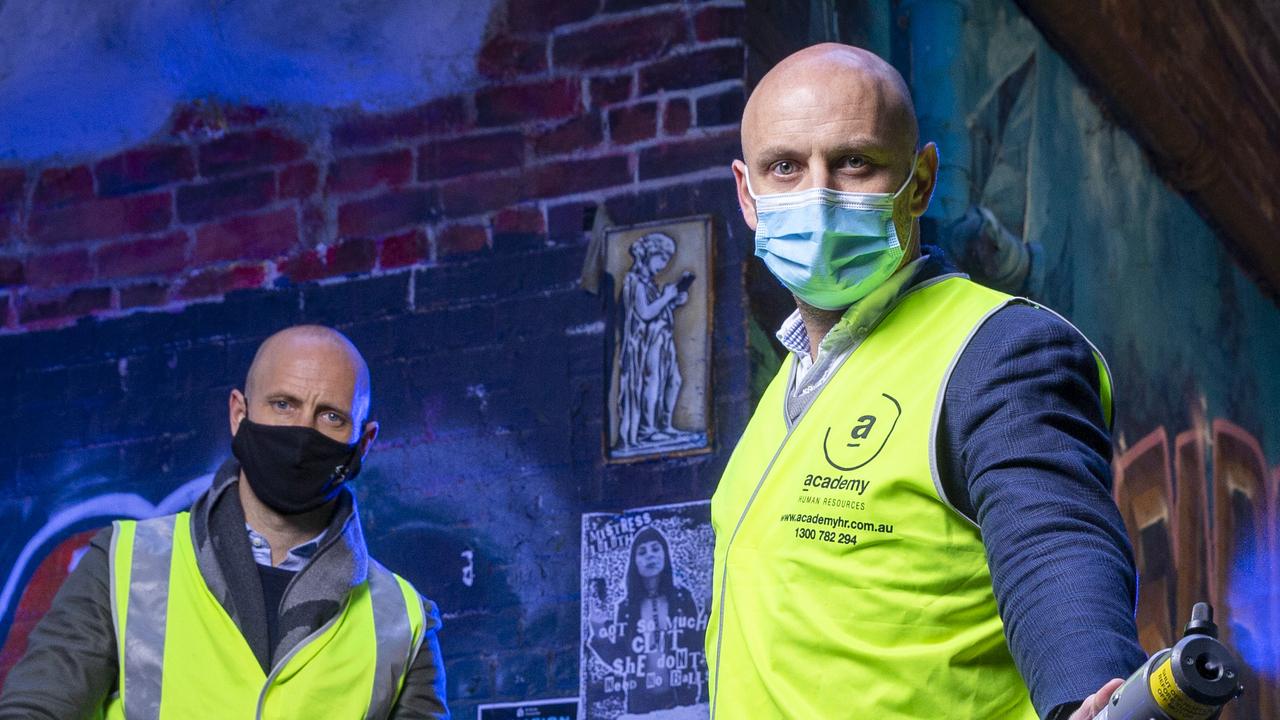‘Michelle Payne effect’ inspires more female jockeys in racing
A new crop of young women are taking to the track after Michelle Payne inspired a generation with her incredible success story. Meet some of Victoria’s best female jockeys.
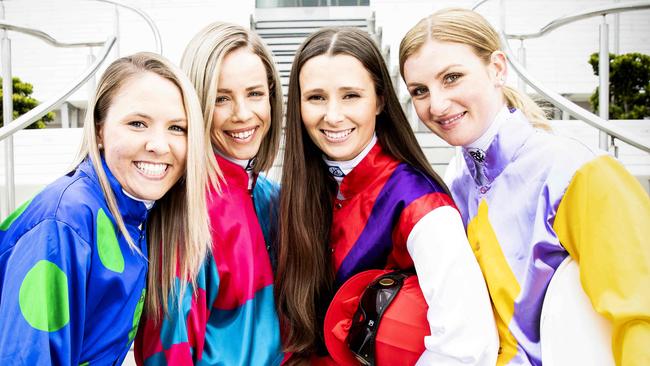
Lifestyle
Don't miss out on the headlines from Lifestyle. Followed categories will be added to My News.
Michelle Payne’s incredible story of defying personal and professional odds to become the first female to win the Melbourne Cup in 2015 has not only energised women already participating in the sport, but is driving a new crop of young hopefuls to take to the track.
Multiple Group One-winning rider Jamie Kah, ballerina-turned-jockey Lucinda Doodt, jockey Jess Eaton and apprentice Georgina Cartwright are part of the new breed taking on the traditionally male-dominated sport.
Racing Victoria chief executive Giles Thompson says the “Michelle Payne effect” is recognised within the racing industry as inspiring more women to participate.
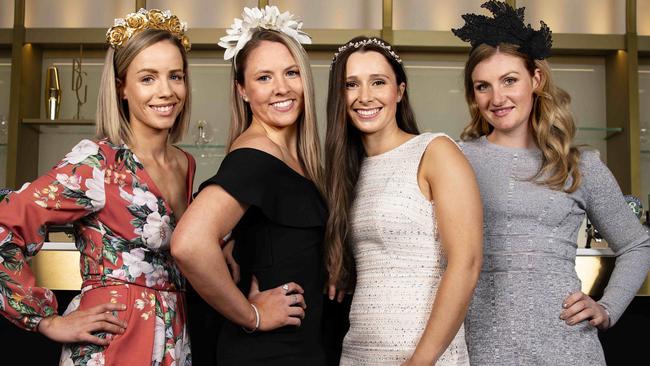
“Fifteen years ago, one in 10 licensed Victorian jockeys were female. Today, one in four riders is female and that growth is fuelling both opportunities and aspirations for young female riders embarking on a career in racing,” he says.
“Year-on-year women account for a greater percentage of our overall jockey population and the achievements of the likes of Michelle Payne, Jamie Kah and Linda Meech demonstrates the undeniable talent of female riders.
“It’s the young and emerging riders that will continue to fuel the level of female participation in our sport. This year, more than 50 per cent of the apprentices licensed in Victoria are females which augurs well for the future.”
Not only are more women getting involved in the sport, they’re also celebrating more success than ever, with female riders winning 623 TAB races in Victoria over the 2018-19 racing season, up from 593 the season prior, Thompson says.
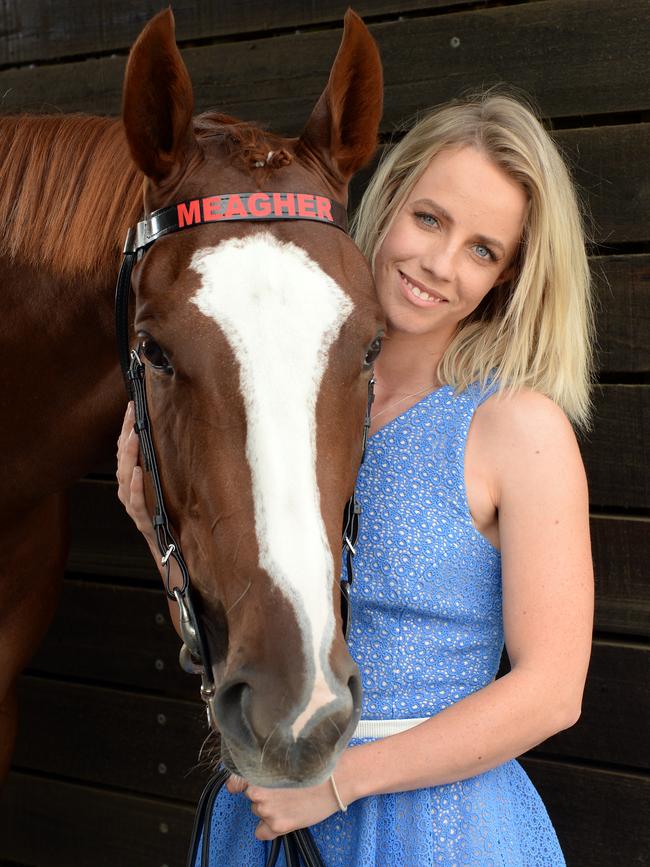
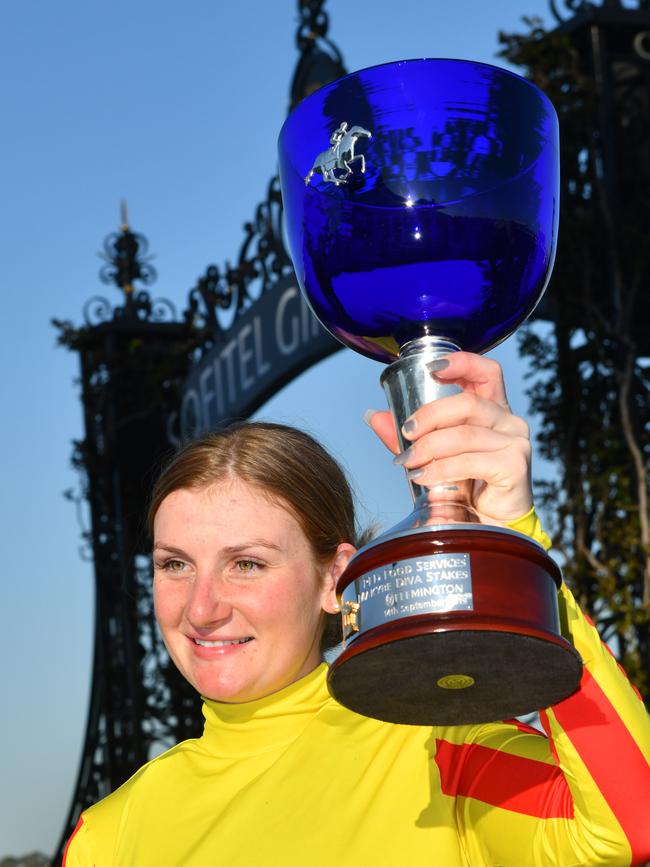
Kah says while hard work and commitment will get a jockey rides regardless of their gender, Payne has inspired a new generation.
“She’s an amazing person who deserved it so much because it definitely was hard being a female jockey when she started,” she says.
Cartwright believes Payne — the subject of the biopic Ride Like a Girl currently in cinemas — has changed the public’s perception of female jockeys.
“Traditionally people out of racing would assume that it’s mostly males that dominate the sport. Now if I’m talking to people out of racing, one of the first things they bring up is Michelle’s win in the Melbourne Cup,” she says.
“I think the release of Michelle’s movie has also been a great eye-opener for many people as it provides some insight into our daily lives, good and bad times.”
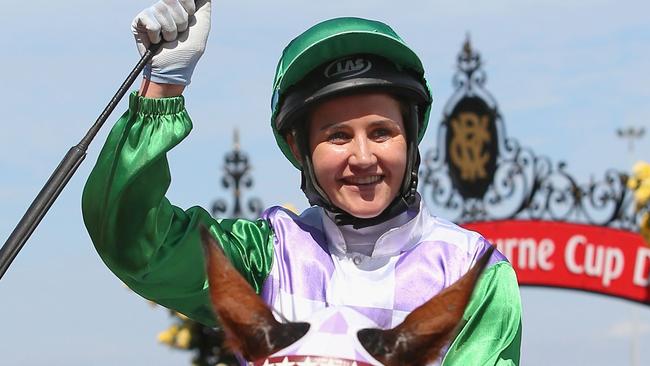
Eaton says as a jockey in her first year of her career she couldn’t help but be inspired by Payne’s win, particularly given the challenges she had to overcome to achieve that success.
“I hadn’t been riding for very long before she won but I think overall the perception towards women after her win has been positive and inspiring for people inside and out of the industry,” she says.
Doodt says she’s been fortunate to work closely with Payne.
“I admire her riding ability but since her Melbourne Cup victory I think she’s become such a brilliant role model for not only the industry but for woman in general,” she says.
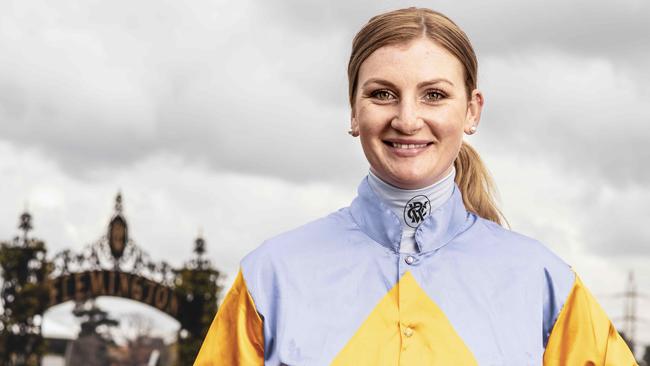
JAMIE KAH, 23
LIVES IN ON THE MORNINGTON PENINSULA AND HAS BEEN RIDING FOR SEVEN YEARS.
HER PARTNER IS JOCKEY CLAYTON DOUGLAS
HOW DID YOU BECOME A JOCKEY?
I’ve been riding and competing horses my whole life and could never imagine a life or job without them. I never knew much about the industry when I first got a job working the afternoons in a racing stable. It didn’t take long to fall in love with racing and the amazing sport. I left school at 15 and started my apprenticeship.
WHAT DO YOU LOVE ABOUT IT?
The best feeling in the world is crossing the finish line first and having that few minutes pulling up with just you and the horse and no one else. You appreciate how amazing these creatures are and how they try their hearts out for you.
WHAT WAS THE APPRENTICESHIP PROCESS LIKE?
Tough at times. You have minimum wage and work crazy hours. I did have a great boss that made my life a lot easier though.
HARDEST PARTS OF JOCKEY LIFE?
Weight management and not having a life because of it at times. Also accepting the high risks and losing friends because of it. We lost one of our best friends (Caitlin Forrest in a four-horse fall in South Australia in 2014) and I was in that race behind her when she fell.
BEST MOMENTS AS A JOCKEY?
Winning my Group One Harlem in the Australian Cup for Lindsay Park and Gatting in the Makybe Diva Stakes at Flemington. Also riding winners overseas in Singapore on Just A Man for Shane Baertschiger. I’ve reached the goals I’ve set myself this year so now the main thing I want to do is try to have a really successful Spring Racing Carnival
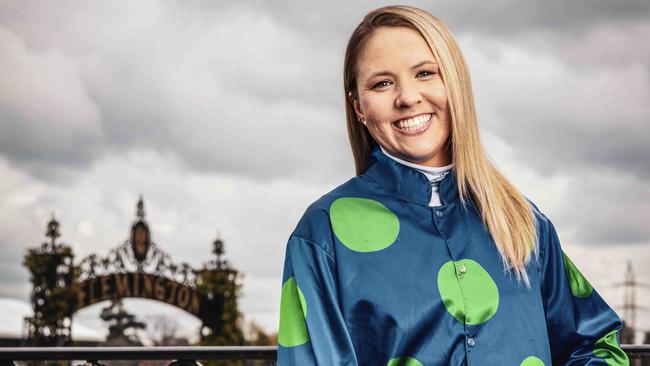
FORMER BALLERINA-TURNED-JOCKEY LUCINDA DOODT, 22
LIVES IN BALLARAT AND IS ENGAGED TO JOCKEY ANTHONY BOYD
HOW DID YOU BECOME A JOCKEY?
I’ve ridden and been around horses my whole life. My family was heavily involved and I was very fortunate in being able to participate in pony club and compete in eventing and showjumping. An opportunity become available to ride some track work and my love for the sport flourished from that day on.
WHAT DO YOU LOVE ABOUT IT?
Being able to work with horses, building relationships and creating a connection with them. I really enjoy the competitiveness. I think it’s something that you must be able to handle, it can be pretty tough sometimes.
HARDEST PARTS OF JOCKEY LIFE?
Being a jockey requires you to have a thick skin, be very self-motivated, be open-minded, and be able to accept criticism. That said, I don’t like to look at the negatives, in this industry I have learnt that every situation can be used as a learning experience.
IS THERE A SENSE OF CAMARADERIE AMONG THE WOMEN OR FIERCE COMPETITION?
A healthy sense of competition is something that every jockey both male and female possesses. The girls are a really tight-knit group but once we hit the track, we’re out there to do a job and each of us want to win and we do what we need to do to get the job done.
TWO FEMALE RIDERS SADLY LOST THEIR LIVES RECENTLY (MIKAELA CLARIDGE ON AUGUST 30 IN CRANBOURNE AND MELANIE TYNDALL THE NEXT DAY IN DARWIN), WHAT IMPACT HAS THAT HAD ON YOU?
It absolutely breaks my heart. Both girls were just going to work doing their jobs. We reminisce in the rooms and it really makes you cherish the fun and great times you spend with your fellow riders. It’s a big reality check but we enter this industry knowing the risks, I love my job and I adore the beautiful horses that I work with. The thought is in the back of your mind but we do what we love.
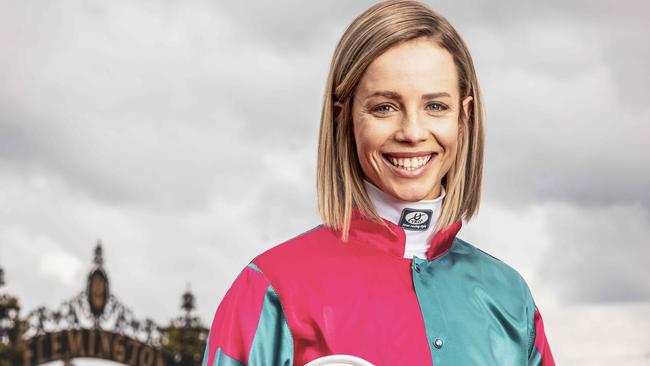
JESS EATON, 25
LIVES IN FRANKSON. SHE’S BEEN RIDING SINCE 2015 BUT HAS BEEN SIDELINED WITH INJURY.
HER PARTNER IS RACING.COM PRESENTER JAMES TZAFERIS
HOW DID YOU BECOME A JOCKEY?
I’ve loved horses since I was a kid and I did the whole pony club thing as a teenager before I started working part-time in racing. I was riding for trainer Mick Price and he always encouraged me to consider a career as a jockey.
HARDEST PARTS OF JOCKEY LIFE?
Dealing with the setbacks of some major injuries. I have broken my left leg twice on different occasions, forcing me to take significant time out of the saddle. Before both injuries I was riding in terrific form and really building some great momentum and connections. Coming back from injury is almost like starting all over again which can be incredibly frustrating, but I have enjoyed the challenges.
BEST MOMENTS AS A JOCKEY?
I love the special people I’ve met in this industry. They will be friends for life and with them I can share my passion for racing. And I’ve been fortunate enough to have won several country cups including Ararat, Avoca, Warracknabeal and St Arnaud.
TWO FEMALE JOCKEYS SADLY LOST THEIR LIVES RECENTLY. DOES IT MAKE YOU MORE CAUTIOUS?
I love what I do and I accept the challenges, dangers and risks involved in my sport. I’ve faced some challenging injuries but I don’t think it would be fair on myself and the other jockeys if I rode on the basis of fear. If it came to that point, I’d probably look into a different career path.
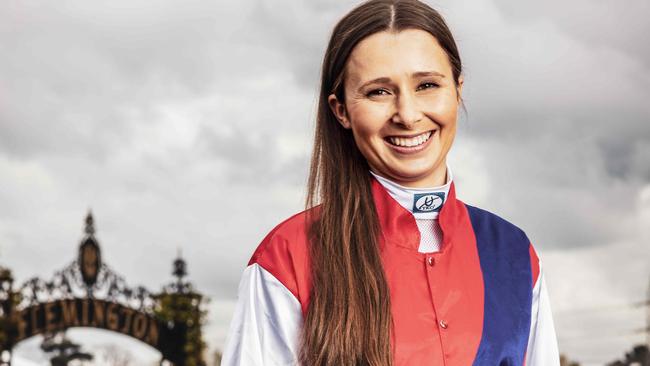
GEORGINA CARTWRIGHT, 26
LIVES IN CAULFIELD AND HAS BEEN AN APPRENTICE FOR 3.5 YEARS
HOW DID YOU BECOME A JOCKEY?
Growing up my mum always had horses so my brother and I would feed and care for them. When I was 11, I asked my mum to teach me to ride. She had an off-the-track thoroughbred so my brother and I both learnt to ride on him and that’s where our love of riding began.
WHAT DO YOU LOVE ABOUT IT?
The adrenaline rush that you get as soon as you jump out of the barriers. I love that no two days are the same and I get to ride a huge array of horses. I enjoy the race days and the atmosphere of the racing community.
WHAT’S THE APPRENTICESHIP PROCESS LIKE?
It’s tough as you try to find your mark as a small fish in a big bowl. There’s a lot of emotional ups and downs as you battle your doubts when you’re struggling to get rides but then there are other times when you’re flying.
HARDEST PARTS OF JOCKEY LIFE?
Because we can race almost every day, racing turns into your life and it’s hard to have much of life outside of racing. As jockeys we’re always on the road driving following track work and miss a lot of time with family and friends.
IS THERE A SENSE OF CAMARADERIE AMONG THE WOMEN OR FIERCE COMPETITION?
We mostly get along pretty well and like to support each other. However, when we’re in a race there are no friends and we are all very competitive as we are out there to do the best job we can.
TWO FEMALE JOCKEYS SADLY LOST THEIR LIVES RECENTLY, WHAT IMPACT HAS THAT HAD ON YOU?
It’s not something I dwell on as it’s important not to think too much about it when you’re riding. It’s certainly tough as the girl’s deaths definitely reinforce how fragile life can be however I’m out there to do a job and there can’t be any doubt or fear in my mind otherwise I would be jeopardising my own safety and that of my fellow riders at risk.
WHAT’S YOUR ULTIMATE GOAL?
Obviously every jockey would love to win a Melbourne Cup, Cox Plate or Caulfield Cup but a race I would really love to win would be in my hometown, the Albury Gold Cup.

